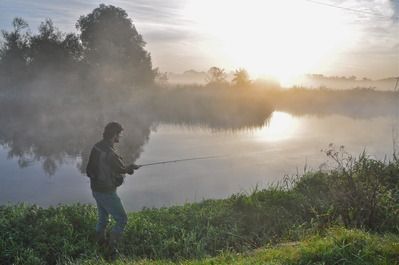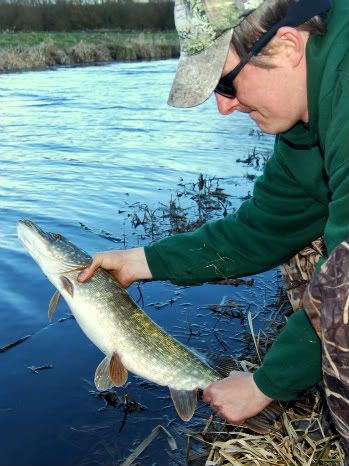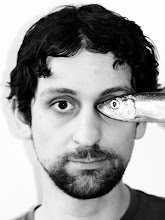
More book and fishing news on the way this month, but for today's blog, I wanted to tackle an issue that every single angler should be concerned about. Because while activities like fish theft and pollution make blood boil on Facebook, a lot of us don't really know how we can act. Virtually every person reading this will have some experience of the dodgy or downright criminal activity that blights fishing. But with so much fire and smoke on Facebook, forums and the rest, the facts and our own part can be unclear.
Too many of us, myself included, can be tempted to jump into the fray when illegal nets, sewage or a pile of dead fish are staring at us. These topics are highly emotive (just read George Monbiot's latest Guardian piece, for example, and tell me you're not alarmed). But it's easier to vent your spleen than educate yourself on what can be done.
In this social media driven world however, expressing indignation or clicking a share button seem to be how many of us "take action". But just as with the government, the national football team and everything else, growing incandescent and ranting is no substitute for action. And so rather than add yet another load of opinions, I wanted to list a few things that any of us can do to actually make a little difference. So here goes:
1. Always report illegal activity: So many times, anglers will see illegal fishing or blatant poaching and grumble without actually acting. The answer is to be active and willing to report. Every angler should have the EA Emergency number stored on their phone (0800 80 70 60), while there is also an excellent guide to reporting environmental offences on the Angling Trust Website. If there is one sure way to ensure the authorities ignore us it is not to report what is going on!
2. Get smart and get it recorded. Observation is key and neither the EA or police can act without intelligence. Reporting that you saw two dodgy people taking fish won't cut it. What did they look like? What was the exact time and location? Did they have a vehicle? What equipment did they have? Information is power. Don't confront people or put yourself at risk, but do take notes and pictures if it is safe to do so.
So often I hear the claim that "the EA/Police won't do anything." You're damned right they won't do anything if you can't be bothered to supply them with any information!
3. Volunteer as a bailiff. The EA has some excellent bailiffs who are keen to help, but they are only a few pairs of eyes and legs in each region. Imagine if every one of us acted to help them! Why not become a bailiff for your local club? It is not a vast time commitment, and will often just be some basic training and checking tickets when you are out fishing or walking the bank. Better still, you could contact the Angling Trust about their Voluntary Bailiff Scheme, which is already making big strides to protect the sport. For those in the South West, there will be a volunteer bailiff induction day in late February. Contact Nevin.Hunter@Anglingtrust.net if you would like to be there and help protect your fishing!
4. Join the Angling Trust: Angling has over three million participants but only a tiny fraction are members of the sport's most important organisation. Other groups, such as the RSPB, have enormous clout by comparison. Why? Because their much larger memberships give them a much greater funding and influence at all levels! There might be a few things you don't quite agree with the Angling Trust on, but this is no reason not to join. Do your sport a huge favour and sign up today at the Angling Trust website.
5. Be savvy with social media: I have done it myself: venting frustration about a situation that has occurred. At best this will start yet another debate, but it could also be counter productive when it comes to catching offenders. A recent example was the barbaric nets found on the Thames. Had this development been kept hush hush, authorities could have waited for the offenders to return, rather than simply causing outrage and tipping off the offenders in the process. By all means express opinions, but be careful with what you share on social media.
6. Broaden Awareness! Facebook rants might be one thing, but another useful role anglers can play is in widening public awareness of the issues our waters face. How many of the general public, for example, have no idea that it is illegal to remove most freshwater fish (and will gladly ask you "have you caught your tea?")? Similarly, they think of environmental issues in terms of carbon, but have no idea of the pollution of fisheries. Anglers have specific knowledge that they can share and even non-anglers are interested in the life of our waterways.
There are various other things you can also do to support and protect fishing, but slagging off immigrants and venting on Facebook have no impact at all, other than reinforcing a sort of impotent anger and the popular lie that we are powerless and unable to help.
Major progress is being made however. Ok, so they might not grab the limelight like a record fish or the latest hilarious YouTube fishing clips, but things are changing. The Angling Trust's Fisheries Enforcement Team, led by ex police professionals including Dilip Sarkar and Nevin Hunter, have made big strides by taking fisheries protection to the highest level with government and police forces. Here are just some of the great things happening:
Project Trespass is a joined up initiative specifically aimed at tackling poaching. This is a far reaching, multi-agency approach that works with landowners, farmers, the police and other sources to tackle environmental crime. You can find out more here: HERE.
Operation Traverse has taken the issue of illegal fishing to highest level, garnering support from the Association of Police Officers and National Wildlife Crime Unit. It rightly points out issues such as the threats to livelihoods in the countryside caused by illegal activity, as well as working with European police forces to share information. Thanks to current efforts, the police are now identifying activities such as poaching as serious criminal activity and working closely with the EA and Angling Trust. After a successful pilot project in the South East, it is now being rolled out across the whole country.
Building Bridges is a scheme that looks to integrate and educate, rather than simply slag off anglers who migrate to the UK from other parts of Europe. It does this through action such as social events, competitions and also producing and sharing information in other languages, so that Poles, Romanians and nationals of many countries have the facts about fishing in the UK. We might tend to tar them all with the same brush, but there are now Poles and other nationalities actively patrolling our waters and playing their part, such as my friends Seb Nowosiad (below) and Marcin Kwasniewski.

There are many more projects and initiatives both in place and being developed (find a handy summary of these is on the latest Angling Trust Fisheries Enforcement bulletin). Another great place to keep up with developments is Dilip Sarkar's excellent Angling Trust Blog. Knowledge is power!
Regardless of your take on the current threats to fishing, the very least any of us can do is join the Angling Trust and be willing to report and share information with the EA, Angling Trust and Police. Because the alternative is to address problems via internet forums and pub style rants; activities that produce plenty of rage but do absolutely nothing to protect the sport we all love.
Besides the challenges faced by fishing at present, there is a huge opportunity to protect the sport with the new initiatives and smarter ways for us to act. But whether we secure a positive future for fishing in the UK depends on more of us taking action and being a part of that change.


4 comments:
Absolutely correct on all counts, less talk and more action is needed from all anglers.
Very good point's there Dom, I've also been guilty of the rare rant on social media but you are spot on in regards to educating anglers/non anglers of the issue's our sport and indeed the environment as a whole faces, I don't often see anything untoward happening where I fish thankfully but I'm under no illusion of how dire it is UK wide, I just hope that one day we shall be able to enjoy our passion without having to look over our shoulders at the issue facing angling.
Also just want to say thank you to Dilip and your associates for all the time and hard work you put into making things happen. i understand its not an easy task to take on so thank you for everything you do for our sport.
Finally someone talking about things we could do improve the situation rather than just moaning about fictional foreigners.
Post a Comment